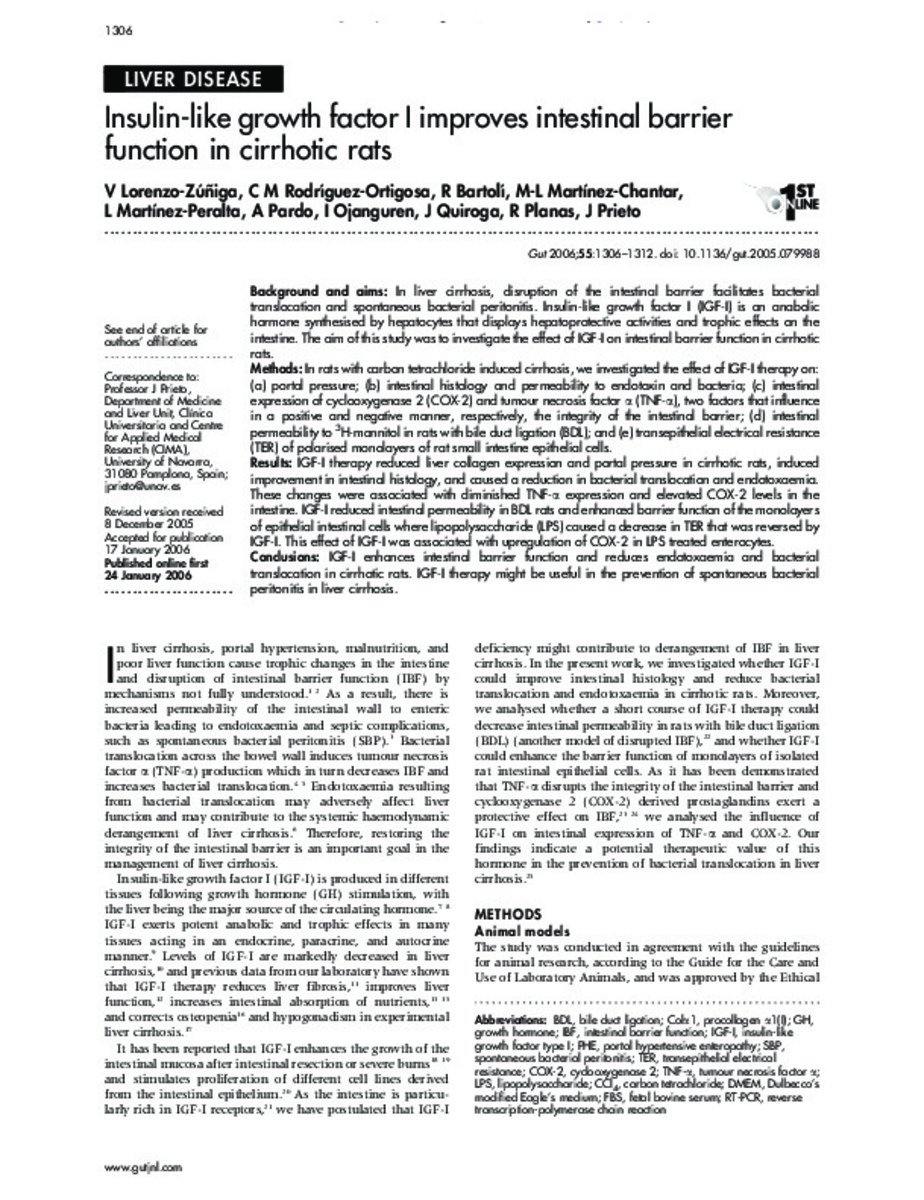Insulin-like growth factor I improves intestinal barrier function in cirrhotic rats
Palabras clave :
Insulin-Like Growth Factor I/therapeutic use
Intestinal Absorption/drug effects
Liver Cirrhosis, Experimental/drug therapy
Fecha de publicación :
2006
Editorial :
BMJ Publishing Group
Cita:
Lorenzo-Zuniga V, Rodriguez-Ortigosa CM, Bartoli R, Martinez-Chantar ML, Martinez-Peralta L, Pardo A, et al. Insulin-like growth factor I improves intestinal barrier function in cirrhotic rats. Gut 2006 Sep;55(9):1306-1312.
Aparece en las colecciones:
Estadísticas e impacto
0 citas en

0 citas en

Los ítems de Dadun están protegidos por copyright, con todos los derechos reservados, a menos que se indique lo contrario.







